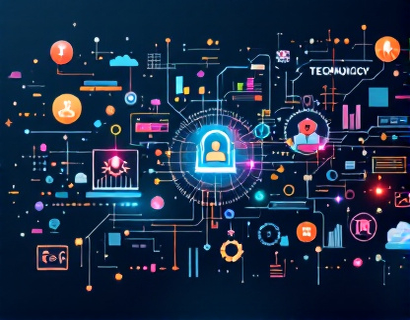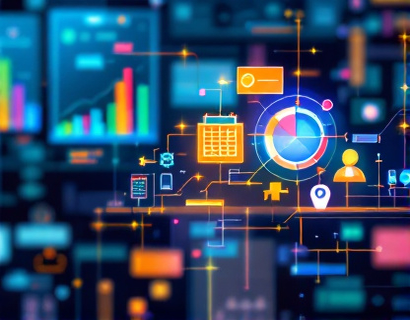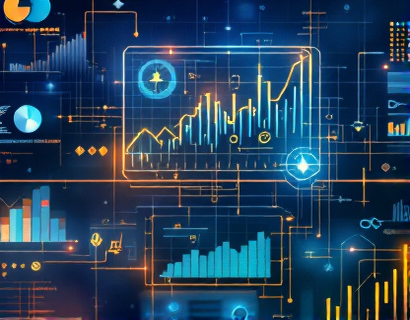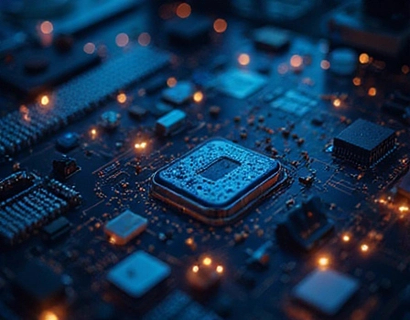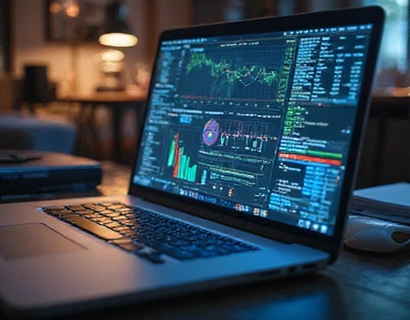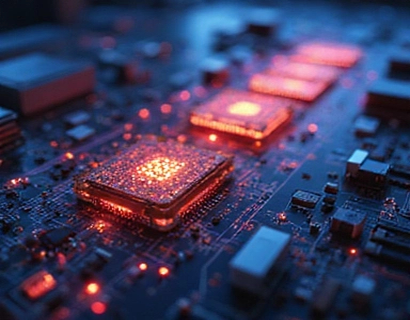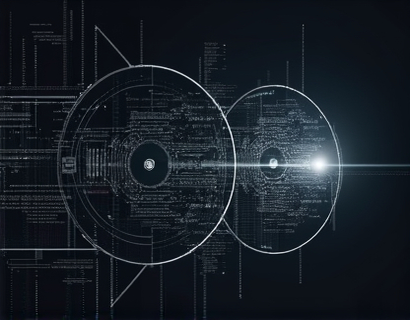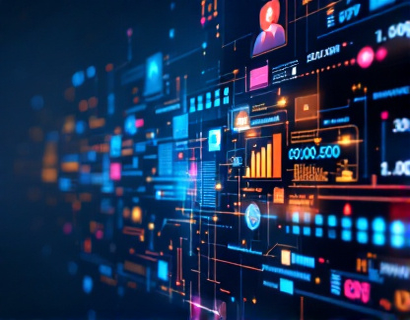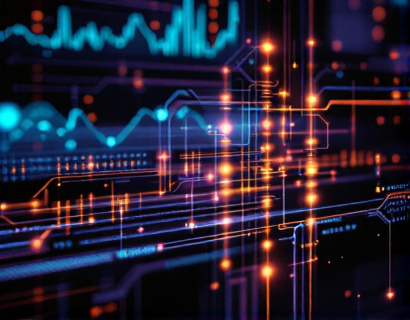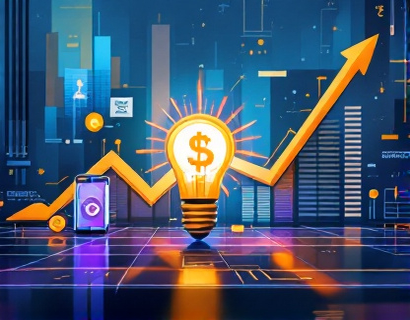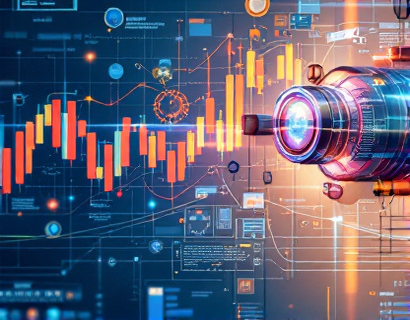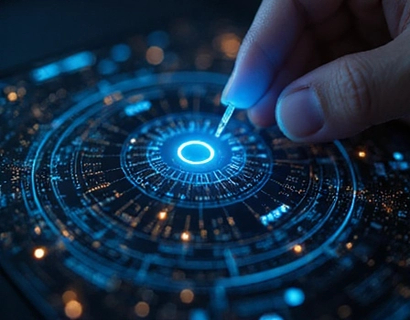Decentralized Transformation: Harnessing AI and Crypto for Next-Gen Digital Solutions
The digital landscape is undergoing a profound transformation, driven by the convergence of two revolutionary technologies: artificial intelligence (AI) and cryptocurrency. This convergence is giving rise to decentralized applications and services that are redefining user experiences and enhancing engagement. For tech enthusiasts, early adopters, and digital innovators, understanding this transformation is crucial. This article delves into the intricate relationship between AI, crypto, and decentralization, exploring how these technologies are synergizing to create a new era of digital solutions.
The foundation of this transformation lies in the decentralized nature of blockchain technology. Blockchain, the underlying infrastructure of cryptocurrencies, offers a secure, transparent, and tamper-proof way to conduct transactions and manage data. By removing the need for central authorities, blockchain enables peer-to-peer interactions that are more efficient and trustworthy. This decentralization is not just limited to finance; it extends to various sectors including healthcare, supply chain, and content creation.
AI, on the other hand, brings intelligent automation and advanced data analysis to the table. Machine learning algorithms can process vast amounts of data to identify patterns, make predictions, and optimize processes. When combined with the transparency and security of blockchain, AI can operate in a decentralized environment, enhancing its capabilities and expanding its applications. This synergy opens up new possibilities for creating decentralized applications (dApps) that leverage both AI and crypto to provide innovative solutions.
Decentralized Applications: The New Frontier
Decentralized applications, or dApps, are software applications that run on a blockchain network rather than on a central server. These applications are governed by smart contracts, which are self-executing contracts with the terms directly written into code. The decentralized nature of dApps ensures that no single entity has control over the application, making them more resilient to censorship and manipulation.
One of the key advantages of dApps is their ability to integrate AI functionalities seamlessly. For instance, AI-driven chatbots can operate on a decentralized platform, providing users with personalized assistance without the need for a central authority to manage user data. This not only enhances user privacy but also improves the efficiency of service delivery. Additionally, AI can be used to optimize the performance of dApps by analyzing user behavior and adjusting algorithms in real-time.
Healthcare is a sector where the combination of AI and decentralization can make a significant impact. Decentralized health records, powered by AI, can ensure that patient data is securely stored and easily accessible to authorized medical professionals. AI algorithms can analyze this data to provide diagnostic insights and treatment recommendations, all while maintaining patient privacy and data integrity. This decentralized approach to healthcare not only improves patient outcomes but also reduces the risk of data breaches.
Enhancing User Engagement through AI and Crypto
User engagement is a critical factor in the success of any digital solution. The integration of AI and crypto can significantly enhance user engagement by creating more interactive, personalized, and rewarding experiences. For example, decentralized gaming platforms can use AI to generate dynamic game environments and NPCs (non-player characters) that adapt to player behavior. These platforms can also utilize crypto tokens as in-game currencies, incentivizing players to participate and engage more deeply with the game.
Another area where AI and crypto can boost engagement is in social media. Decentralized social networks can use AI to curate content based on user preferences, ensuring a more tailored and engaging experience. These networks can also reward users with crypto tokens for creating and sharing high-quality content, fostering a community-driven ecosystem where users are motivated to contribute value.
Furthermore, AI-driven analytics can provide insights into user behavior and preferences, enabling content creators and platform managers to refine their strategies and improve user satisfaction. By leveraging blockchain, these insights can be shared transparently, building trust and encouraging more active participation from the user base.
Smart Contracts and Automated Processes
Smart contracts are a cornerstone of decentralized applications, automating and enforcing agreements without the need for intermediaries. These self-executing contracts are stored on the blockchain and trigger actions when predefined conditions are met. When combined with AI, smart contracts can become even more powerful, as AI can predict and adapt to changing conditions, ensuring that contracts remain effective and relevant.
In the realm of supply chain management, smart contracts can track the movement of goods in real-time, ensuring transparency and accountability. AI can analyze this data to optimize logistics, predict delays, and identify bottlenecks. For instance, if a shipment is delayed, an AI-driven smart contract can automatically trigger compensation or reroute the shipment to minimize disruptions. This level of automation not only streamlines processes but also builds trust among all parties involved.
Another application is in the financial sector, where smart contracts can automate complex financial transactions, such as insurance claims or loan agreements. AI can assess the risk and eligibility of applicants, while the smart contract executes the agreed terms without human intervention. This reduces fraud, speeds up processes, and lowers costs, making financial services more accessible and efficient.
Decentralized Finance (DeFi) and AI
Decentralized Finance (DeFi) is a rapidly growing field that leverages blockchain and AI to create financial services without traditional intermediaries. DeFi platforms offer a range of services, including lending, borrowing, trading, and yield farming, all powered by smart contracts and AI algorithms.
AI plays a crucial role in DeFi by enhancing risk management and optimizing investment strategies. Machine learning models can analyze market data to predict price movements, identify trends, and recommend trades. This AI-driven approach can help users make more informed decisions and potentially increase their returns. Additionally, AI can detect fraudulent activities and anomalies in real-time, ensuring the security and integrity of DeFi platforms.
One innovative application is the use of AI in automated market makers (AMMs). Traditional market makers rely on their expertise to set prices and manage liquidity, but AI-powered AMMs can dynamically adjust prices based on market conditions and user demand. This not only improves liquidity but also reduces the risk of price manipulation, creating a more fair and efficient market.
Challenges and Considerations
While the potential of AI and crypto in decentralized applications is immense, there are several challenges and considerations that need to be addressed. One of the primary concerns is scalability. Many blockchain networks struggle with high transaction fees and slow processing times, which can hinder the widespread adoption of dApps. Solutions like layer 2 protocols and more efficient consensus mechanisms are being developed to address these issues.
Another challenge is regulatory uncertainty. The decentralized nature of these technologies often falls into a gray area of existing laws and regulations. As governments and regulatory bodies begin to recognize the significance of AI and crypto, clearer guidelines and frameworks will be essential to ensure compliance and protect users.
Security is also a critical aspect. While blockchain is inherently secure, the smart contracts and decentralized applications built on top of it can have vulnerabilities. Rigorous testing and auditing of smart contracts are necessary to prevent exploits and ensure the reliability of dApps. AI can play a role here by identifying potential security risks and vulnerabilities in the code.
Future Prospects
The future of decentralized applications powered by AI and crypto is promising. As technology continues to evolve, we can expect to see more sophisticated and user-friendly dApps that seamlessly integrate AI functionalities. The convergence of these technologies will likely lead to the development of new industries and business models, further transforming the digital landscape.
One exciting area is the integration of AI with the Internet of Things (IoT) on a decentralized platform. Smart devices can communicate and share data securely, enabling more intelligent and autonomous systems. For example, a decentralized smart home ecosystem can use AI to optimize energy usage, security, and comfort based on real-time data from connected devices.
Another frontier is the use of AI in decentralized identity management. Blockchain-based identity solutions can provide users with control over their personal data, allowing them to share specific information with services as needed. AI can enhance this by verifying identities and detecting fraudulent activities, ensuring a secure and privacy-preserving experience.
In conclusion, the combination of AI and cryptocurrency is driving a revolutionary transformation in the digital world. Decentralized applications and services that leverage these technologies are not only enhancing user experiences but also opening up new possibilities for innovation and growth. As we move forward, it is essential to address the challenges and continue exploring the vast potential of this synergy.







